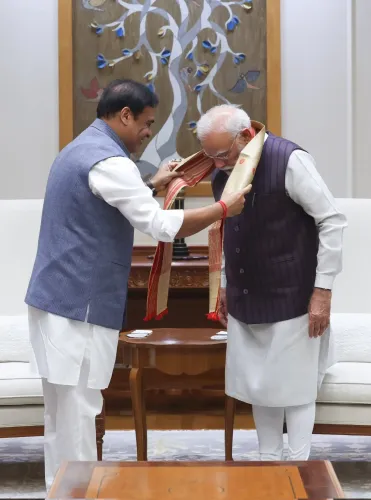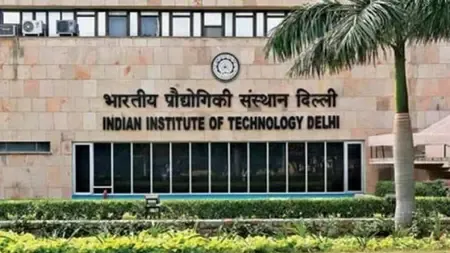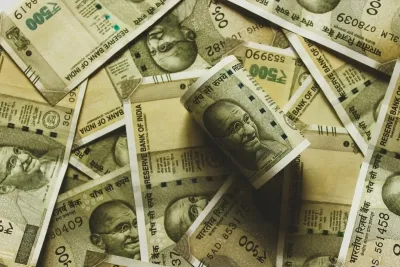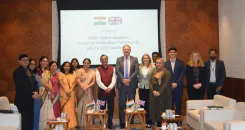Is Shubhanshu Shukla’s Historic Return from the ISS Today?
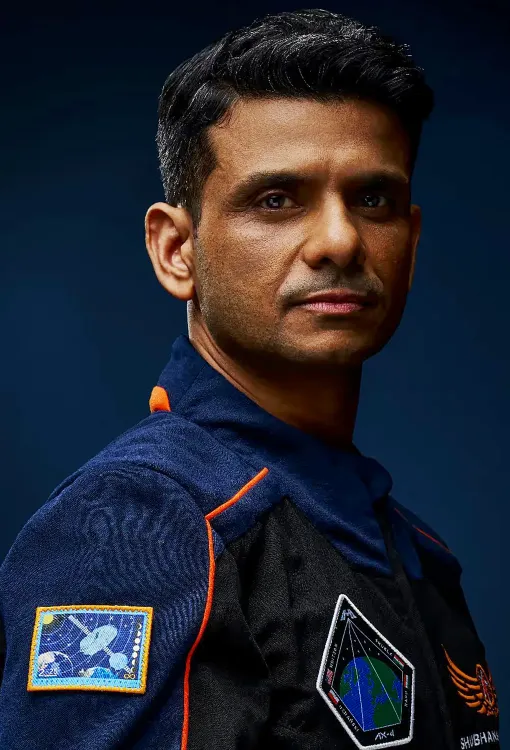
Synopsis
Key Takeaways
- Shubhanshu Shukla is India's first astronaut to visit the ISS.
- He participated in an 18-day mission under Axiom-4.
- The mission returned over 580 pounds of scientific cargo.
- Shukla's journey focused on inspiring future generations of scientists.
- His reflections on India highlight the nation's growing confidence and ambition.
New Delhi, July 14 (NationPress) Group Captain Shubhanshu Shukla, recognized as India’s inaugural astronaut to journey aboard the International Space Station (ISS), is poised to return to Earth following a remarkable 18-day mission as part of the Axiom-4 (AX-4) private spaceflight.
The SpaceX Dragon spacecraft, which is transporting Shukla alongside three international crew members, is scheduled to undock from the ISS at 4:30 PM IST (Indian Standard Time) on Monday. It is anticipated to splash down in the Pacific Ocean close to the California coastline at approximately 3:00 PM IST on July 15 (Tuesday).
Shukla, who serves as an officer in the Indian Air Force, was accompanied on this mission by seasoned American astronaut and mission commander Peggy Whitson, ESA astronaut Slawosz Uznanski-Wisniewski from Poland, and Hungarian astronaut Tibor Kapu. Their voyage aboard the Dragon spacecraft signifies the fourth private mission orchestrated by Axiom Space in partnership with NASA and SpaceX.
Throughout his stay on the ISS, Shukla engaged in a variety of scientific experiments and outreach initiatives aimed at motivating future generations of Indian scientists and engineers. The mission successfully returned over 580 pounds of cargo, including equipment and significant research samples derived from more than 60 scientific experiments conducted in microgravity.
In a poignant farewell message from space, Shukla characterized his experience on the ISS as “an incredible journey,” expressing gratitude to ISRO, Axiom Space, NASA, and SpaceX for their unwavering support.
He also honored the contributions of Indian students and researchers who played a vital role in achieving the mission’s scientific objectives.
As he gazed down at Earth from orbit, Shukla shared an emotional reflection on his homeland, stating, “Today's India appears ambitious from space, today’s India stands brave, today’s India exudes confidence, and today’s India radiates pride. Because of these traits, I can confidently assert that today's India surpasses the entire world.”
As India continues to enhance its stature in the global space arena, Shubhanshu Shukla’s successful mission represents a significant milestone.

